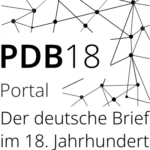 Verband feministischer Wissenschafteri*nnen (VfW); Reihe feminismen diskutieren in Koop. mit dem Depot (Web)
Verband feministischer Wissenschafteri*nnen (VfW); Reihe feminismen diskutieren in Koop. mit dem Depot (Web)
Zeit: Mo., 22.04.2025, 19 Uhr
Ort: Depot, Breite Gasse 3, 1070 Wien – und Livestream via YouTube https://youtu.be/68X25Nm4Wf8
Wer waren die Frauen, die für die Befreiung Österreichs und gegen das faschistische Regime gekämpft haben? Woher kamen sie, was trieb sie an? Im Rahmen der Präsentation werden wir sie kennen lernen. Für das Forschungsteam erzählt Lisbeth N. Trallori über Leben und Aktionen dieser Antifaschistinnen. Über ihre List und Ausdauer für Gerechtigkeit, Antirassismus, Menschlichkeit einzutreten und gegen Barbarei und Krieg zu agieren. Aber auch über ihre Angst vor Folter und Tod. Von Bespitzelung und Verhaftung bedroht, stellten sie sich trotz dieser Belastungen der Repressionspolitik solidarisch entgegen. Sie halfen Verfolgten bei der Flucht, organisierten illegale Kommunikationsnetze, übten Sabotage in Fabriken, schlossen sich der Résistance an oder kämpften in den Wäldern als Partisaninnen.
Programm
– Vortrag von Lisbeth N. Trallori
– Lesung aus dem Buch Der Himmel ist blau. Kann sein. Frauen im Widerstand. Österreich 1938-1945, hgg. von K. Berger, E. Holzinger, L. Podgornik und L. N. Trallori, Wien 2024 (Web)
– Filmausschnitt aus „Küchengespräche mit Rebellinnen“ (A 1984)
– Moderation von Sabine Prokop (VfW)
Lisbeth N. Trallori ist Soziologin und Politikwissenschafterin in Wien.
Quelle: Female-L

 Institut für Neuere Geschichte und Zeitgeschichte, Johannes Kepler Universität Linz (JKU)
Institut für Neuere Geschichte und Zeitgeschichte, Johannes Kepler Universität Linz (JKU)  DFG-Projekt „Der deutsche Brief im 18. Jahrhundert“, BBAW Berlin/IZEA Halle/ULB Darmstadt (Berlin-Brandenburgische Akademie der Wissenschaften)
DFG-Projekt „Der deutsche Brief im 18. Jahrhundert“, BBAW Berlin/IZEA Halle/ULB Darmstadt (Berlin-Brandenburgische Akademie der Wissenschaften)  FWF ESPRIT project “Mining the Earth, Roaming the Globe” (PI: Gabriele Marcon): Gabriele Marcon and ERC project SCARCE (PI: Sebastian Felten): Claire Sabel
FWF ESPRIT project “Mining the Earth, Roaming the Globe” (PI: Gabriele Marcon): Gabriele Marcon and ERC project SCARCE (PI: Sebastian Felten): Claire Sabel  The international research network on „Military, War, and Gender/Diversity“ (MKGD): MKGD Online Research Colloquium
The international research network on „Military, War, and Gender/Diversity“ (MKGD): MKGD Online Research Colloquium  Anna Horstmann und Martin Lutz, Univ. Bielefeld
Anna Horstmann und Martin Lutz, Univ. Bielefeld  Webportal „Erinnerungsort Wien“; Bruno Kreisky Archiv und Johanna Dohnal Archiv
Webportal „Erinnerungsort Wien“; Bruno Kreisky Archiv und Johanna Dohnal Archiv  Fakultätszentrum für transdisziplinäre historisch-kulturwissenschaftliche Studien
Fakultätszentrum für transdisziplinäre historisch-kulturwissenschaftliche Studien  European Journal for Nursing History and Ethics; Karen Nolte und Susanne Kreutzer
European Journal for Nursing History and Ethics; Karen Nolte und Susanne Kreutzer  Kulturwissenschaftliche Zeitschrift: Anna-Maria Post (Univ. Konstanz, Germanistik) und Anna Karina Sennefelder (Univ. Freiburg, Medienkulturwissenschaft)
Kulturwissenschaftliche Zeitschrift: Anna-Maria Post (Univ. Konstanz, Germanistik) und Anna Karina Sennefelder (Univ. Freiburg, Medienkulturwissenschaft)